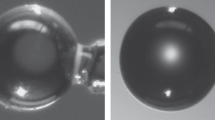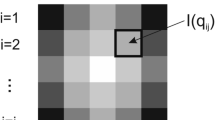Abstract
The major concepts, ideas, and methods of the theory of expert systems are shortly reviewed. The possibilities and perspective of their application to diffraction data processing are discussed.
Similar content being viewed by others
References
Expert Systems. Principles and Case Studies, R. Forsyth, Ed. (Chapman, London, 1986; Radio i Svyaz’, Moscow, 1987), p. 51.
J. H. Holland, Adaptation in Natural and Artificial Systems (Univ. of Michigan Press, Michigan, 1975), p. 217.
E. Lange and W. Heinrich, Wir bestimmen Pflanzen (Kinderbuchverlag, Berlin, 1988).
A. L. Tolstikhina, P. A. Artyunov, and V. V. Klechkovskaya, Kristallografiya 40(6), 992 (1995) [Crystallogr. Rep. 40, 918 (1995)].
Author information
Authors and Affiliations
Additional information
__________
Translated from Kristallografiya, Vol. 46, No. 3, 2001, pp. 559–564.
Original Russian Text Copyright © 2001 by Burova, Shchedrin.
Rights and permissions
About this article
Cite this article
Burova, E.M., Shchedrin, B.M. On design of expert systems for processing and interpretation of diffraction data. Crystallogr. Rep. 46, 506–510 (2001). https://doi.org/10.1134/1.1376486
Received:
Issue Date:
DOI: https://doi.org/10.1134/1.1376486




